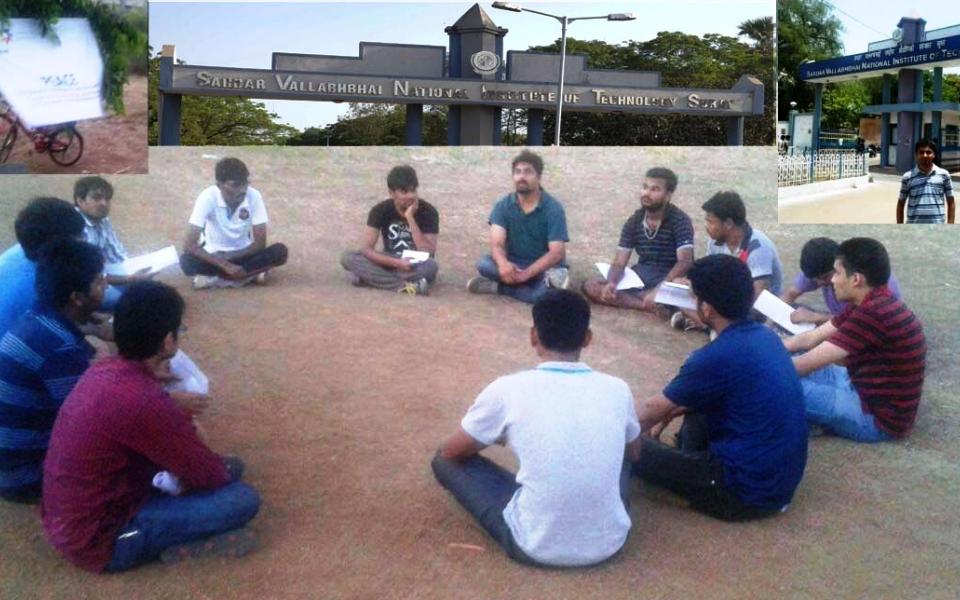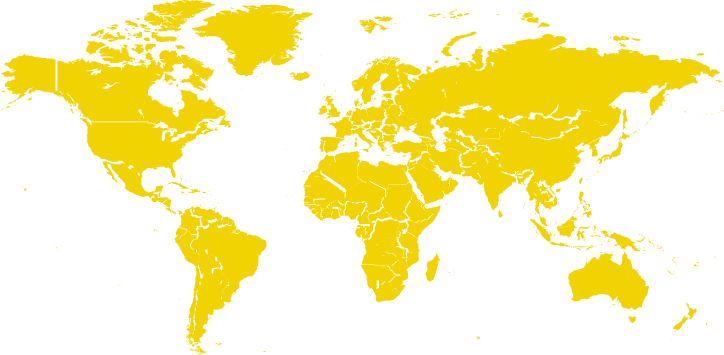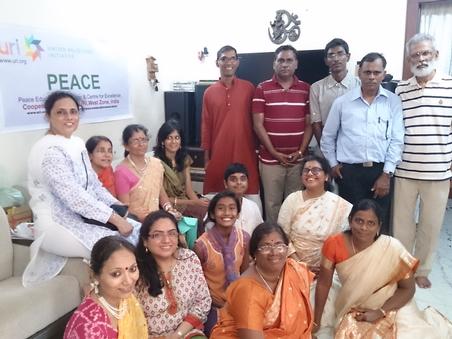
Sudhanshu Kamat, one of our active youth members from PEACE CC (Multi Region), organized an awareness session on the topic 'Environmental Significance of Indian Cow' at his campus ground on 24th April, 2015. He is pursuing his MTech. in Environment Engineering at the prestigious SVNIT (Sardar Vallabhai National Institute of Technology), campus in Surat, India.
For quiet sometime, he had been talking to his faculty and friends about PEACE CC's initiative in environment awareness. His faculty encouraged his interest and Sudhanshu was inspired to gather his friends for a session followed by group discussions at the campus ground. After his friends agreed to participate, he requested them to do some homework. He informed them about the session topic and also handed them a research paper titled, 'The Significance of Cows in Indian Society Between Sacredness and Economy,' authored by Govindasamy Agoramoorthy and Minna J. Hsu from Tajen University and National Sun Yat-sen University, respectively. He requested them to study the paper and also contribute additional thoughts with reference to ecological conservation for putting into practice.
Sudhanshu focused on one aspect - Biogas. His input is excerpted below.
"Biogas is a method of producing methane gas from organic matter. It can be used by rural people as fuel for cooking food items, with less impact on forest ecology. The biogas technology harnesses the natural process by creating an artificial environment via a biogas plant, which provides conditions for natural bacterial action leading to methane gas production. The digested organic matter “slurry” is removed by an outlet, which can be used as a natural fertiliser for crops. The impact of household biogas plants in sustainable development is yet to be fully realised in rural India. Firewood collected from forest areas still serves as the main fuel consumed in India and peoples’ dependency on firewood has serious detrimental effect on the local ecology due to the unsustainable removal of natural forest vegetation. Biogas plants, being an eco-friendly affordable technology, safeguard local forest resources. The negative impacts of chemical fertilisers to soil and ecology are also well known. After the biogas plants were established in villages, the need for chemical fertilizers will be reduced, and farmers can be seen increasingly using the organic slurry as natural fertiliser for crops, which enhances topsoil health in agricultural areas promoting healthy agricultural and terrestrial ecosystems in villages. The organic manure helps in retaining soil fertility and productivity. Furthermore, the alternative renewable energy source of cow dung will significantly reduce pressure on India’s forests, soil and associated terrestrial ecosystems, ultimately mitigating global warming while enhancing ecological conservation."
This was followed by more inputs by other students.
However, Sudhanshu adds, 'Majority of the session was followed by a group discussion and brain storming on environmental issues and the importance of protecting and nurturing the Indian cow and how more awareness need to be created, that need to be followed up for implementation.'
The attendants of this session consisted of UG, PG and PhD students of various engineering background. By and large students from Chemical Engg. and Environment Engg. actively contributed towards the discussion.
The students were happy at the end of the one-hour session.
For Sudhanshu, he was excited as this was the first time he was doing an event on behalf of PEACE CC in his campus. He also chose the arena on the ground, close to a tree, so that he could place the URI-PEACE CC banner.
He shares his experience below:
"It was indeed as great experience to host an event on behalf of PEACE CC based on this topic of such an important issue. The interactive session certainly brought some awareness, and most of the students felt enthusiastic to apply the engineering knowledge of their respective fields, aspiring to understand the environmental significance of Indian cow. The students from all the disciplines were keen to take an initiative to spread this awareness among more people. Apart from that, there were plans being made in the discussion to visit some dairy farms and industries of Gujarat, in the beginning of the following academic year, as an academic as well as extra-curricular visit. I hope I can facilitate more of such awareness during my next academic year."

